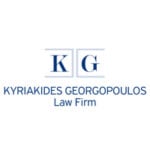-
Climate – the law governing operations that emit Greenhouse Gases (e.g. carbon trading) is addressed by Environment and Climate Change international guides, in respect of ESG: a. Is there any statutory duty to implement net zero business strategies; b. Is the use of carbon offsets to meet net zero or carbon neutral commitments regulated; c. Have there been any test cases brought against companies for undeliverable net zero strategies; d. Have there been any test cases brought against companies for their proportionate contribution to global levels of greenhouse gases (GHGs)?
a. Is there any statutory duty to implement net zero business strategies;
There is currently no statutory duty to implement net zero business strategies.
The Corporate Sustainability Reporting Directive ((EU) 2022/2464; the CSRD) addresses corporate sustainability reporting. According to the CRSD, the companies in scope should report their policies and actions to align their business strategies with the objectives of limiting global warming to 1.5°C in line with the Paris Agreement. This entails an obligation to report on actions to reduce greenhouse gas emissions and to contribute to climate neutrality by 2050.
b. Is the use of carbon offsets to meet net zero or carbon neutral commitments regulated;
There is no obligation under Finnish law to offset greenhouse gas emissions, nor is there legislation pertaining to voluntary carbon offsets. However, the Ministry of the Environment has published a Guide to good practices for voluntary carbon markets (Publications of the Finnish Government 2023:24). This guide aims to consolidate and clarify international best practices within the Finnish context, enhancing the credibility of Finnish carbon markets and fostering transparency and confidence in the quality of climate claims and the credits underpinning them. Voluntary carbon offsetting was previously subject to a money collection license under the Money Collection Act (863/2019), but this requirement was removed in 2021.
Further, the EU Regulation establishing a Union certification framework for permanent carbon removals, carbon farming and carbon storage in products ((EU) 2024/3012) entered into force in December 2024. The regulation introduces a voluntary EU-level certification framework for carbon removals and soil emission reductions. The operators offering carbon removals, carbon farming and carbon storage must demonstrate compliance with the regulation by participating in a certification scheme recognised by the Commission. Further, the Commission will establish an electronic EU-wide registry to ensure transparency and full traceability of the so-called certified units, which will be issued to reflect carbon net benefit generated through certified carbon removal and soil emission reduction activities by 27 December 2028.
c. Have there been any test cases brought against companies for undeliverable net zero strategies;
We are not aware of test cases against companies regarding undeliverable net zero strategies. The only related cases were brought by the Finnish Association for Nature Conservation and Greenpeace Norden against the State of Finland (case KHO:2023:62) and a coalition of organisations including the Finnish Association for Nature Conservation, Greenpeace Norden, and others against the State of Finland (case KHO:2025:2).
In case KHO:2023:62, the association argued that Finland’s annual climate report lacked necessary assessments to meet the targets of the Climate Act (423/2022), despite available data indicating the need for additional measures. The Supreme Administrative Court (SAC) did not review the appeal, stating that the government’s decision to submit the report was not an appealable administrative decision. However, the SAC noted that judicial review could occur if the omission led to non-compliance with the Climate Act.
In case KHO:2025:2, the SAC reviewed an appeal regarding Finland’s failure to strengthen carbon sinks in the land use sector. The SAC referenced a recent European Court of Human Rights ruling (Verein KlimaSeniorinnen Schweiz and others v. Switzerland, 9 April 2024), which emphasised the need for judicial review of state climate actions. The SAC did not find the government in violation of climate targets at this stage but mentioned that the appeal’s outcome could change if additional measures prove insufficient to meet the 2030 and 2035 targets.
d. Have there been any test cases brought against companies for their proportionate contribution to global levels of greenhouse gases (GHGs)?
We are not aware of any test cases brought against companies for their proportionate contribution to global levels of greenhouse gases (GHGs) in the Finnish courts.
-
Biodiversity – are new projects required to demonstrate biodiversity net gain to receive development consent?
New projects are not required to demonstrate biodiversity net gain to receive development consent. However, operators are required to know the environmental impacts and risks of their operations as well as to reduce adverse impacts. The Nature Conservation Act (9/2023) safeguards certain natural habitats and species, prohibiting their deterioration or destruction. Additionally, the Nature Conservation Act, along with the Decree of the Ministry of the Environment on Voluntary Ecological Offsetting (933/2023), provide guidelines for voluntary ecological offsetting.
-
Water – are companies required to report on water usage?
The CSRD has been implemented in Finland through amendments to the Accounting Act (1336/1997). If a company exceeds the thresholds laid down in the Act, it is required to prepare and publish a sustainability statement, which must include information on the company’s environmental, social, and governance practices.
Further, companies holding an environmental permit are often required to maintain records and report on various environmental factors, such as water usage. The specific permit provisions determine whether such obligations are applicable.
-
Forever chemicals – have there been any test cases brought against companies for product liability or pollution of the environment related to forever chemicals such as Perfluoroalkyl and Polyfluoroalkyl Substances (PFAS)?
We are not aware of test cases in Finland against companies for product liability or environmental pollution concerning ‘forever chemicals’ like Perfluoroalkyl and Polyfluoroalkyl Substances (PFAS). According to the Finnish Environment Institute, there is no PFAS manufacturing in Finland. PFAS are subject to stringent EU regulations, concerning both product content and industrial usage. Persistent organic pollutants (POPs) are banned across the EU.
-
Circularity – a. The law governing the waste hierarchy is addressed by the Environment international guide, in respect of ESG are any duties placed on producers, distributors or retailers of products to ensure levels of recycling and / or incorporate a proportionate amount of recycled materials in product construction? b. Are any duties placed on producers, distributors or retailers of products to handle the end-of-life of the products placed on the market?
a. The law governing the waste hierarchy is addressed by the Environment international guide, in respect of ESG are any duties placed on producers, distributors or retailers of products to ensure levels of recycling and / or incorporate a proportionate amount of recycled materials in product construction?
Section 8 of the Waste Act (646/2011) includes a general obligation to comply with the order of priority – i.e., the ‘waste hierarchy’ – which applies to all activities. Priority shall be given to reducing the quantity and harmfulness of waste generated. If waste is, however, generated, the waste holder shall first and foremost prepare the waste for re-use or, secondarily, recycle it. If recycling is not possible, the waste holder shall recover the waste in other ways, including by means of energy recovery. If recovery is not possible, the waste shall be disposed of.
The Government decree on packaging and packaging waste (1029/2021) regulates the separate collection, reuse, recycling, and other waste management of used packaging and disposable plastic drink cups, as well as requirements related to the characteristics and labelling of packaging placed on the Finnish market. Packaging producers and beverage packaging return system operators must meet the following annual targets: 90% of packaging placed on the market must be reused or recycled and at least 65% of packaging waste must be recycled. By 1 January 2030, at least 70% of packaging waste must be recycled. Beverage packaging return system operators are considered compliant if they meet the recycling obligations in the Government Decree on the return system for beverage packaging (526/2013). Other packaging producers must ensure the recycling targets are met.
b. Are any duties placed on producers, distributors or retailers of products to handle the end-of-life of the products placed on the market?
Producers of tyres of motor vehicles and other vehicles or machinery, passenger cars, vans and other equivalent vehicles, electrical and electronic equipment, batteries and accumulators, including batteries and accumulators incorporated into electrical and electronic equipment, vehicles or other products, newspapers, magazines, office paper and other corresponding paper products, packaging, fishing nets as well as single-used plastic products are subject to the extended producer responsibility. This means that they are required to organise, and to be responsible for the costs arising from, waste management for products that they have placed on the market in Finland. The most common way to take care of extended producer responsibility is to join a relevant producer responsibility organisation.
By joining a return system for packaging, beverage manufacturers and importers are exempt from the beverage container tax. A beverage container tax of EUR 0.51 per liter is levied on certain alcoholic and soft drink packages, but this tax does not need to be paid if the beverage manufacturer or importer joins an approved and functioning return scheme or organises one themselves (Act on Excise Duty on Certain Beverage Containers (1037/2004)). The deposit encourages consumers to return empty beverage containers for reuse. In practice, most beverage manufacturers and importers have joined the return schemes managed by Suomen Palautuspakkaus Oy, also known as Palpa.
Distributors and retailers of batteries, accumulators, tyres, and electrical and electronic equipment have obligations under the Waste Act (646/2011), section 56 and 57, related to the reception of end-of-life products, providing information, and forwarding the received products for recycling and reuse. For example, retailers must accept discarded products free of charge at their point of sale. The costs incurred after reception, such as transport and handling costs, are borne by producer organisations. Producers are responsible for the waste management of products and the associated costs after the waste product leaves the seller’s premises.
-
Plastics – what laws are in place to deter and punish plastic pollution (e.g. producer responsibility, plastic tax or bans on certain plastic uses)?
The Waste Act regulates the end-of-life waste status, extended producer responsibility, littering and penal provisions for infringements. Producers of packaging as well as single-used plastic products are subject to the extended producer responsibility, and thus required to organise, and to be responsible for the costs arising from, waste management for products that they have placed on the market in Finland. The most common way to take care of extended producer responsibility is to join a relevant producer responsibility organisation.
The Government decree on certain plastic products regulates the requirements for certain plastic products supplementing the Waste Act, in particular the provisions regarding extended producer responsibility, necessary for the implementation of Directive (EU) 2019/904 of the European Parliament and of the Council on the reduction of the impact of certain plastic products on the environment. The Government decree on packaging and packaging waste regulates the requirements for the separate collection, reuse, recycling and other waste management of used packaging and single-use plastic beverage cups, as well as the characteristics and labelling of packaging placed on the Finnish market. The Government decree on compensation paid by producers of certain plastic products to municipalities lays down provisions on compensation payable to municipalities by producers of products referred to in the Waste Act for measures related to the prevention and cleaning up of litter caused by these products. Similarly, the Act on the Excise Duty of Certain Beverage Packaging regulates the taxation of certain beverage products. However, there is no national tax scheme for plastics like in some other European countries.
The new EU Packaging and Packaging Waste Regulation ((EU) 2025/40) will affect Finnish legislation on plastic use as it will be applied from 2026 onwards. The regulation prohibits the use of certain single-use plastic packaging. The banned packaging includes, with certain exceptions, single-use plastic packaging used for packing fresh fruits and vegetables and single-use plastic food and beverage packaging used in the hospitality and restaurant sectors. Very lightweight plastic carrier bags are also prohibited, except for bags needed for hygiene reasons or used in bulk sales when their use prevents food waste. The Commission will publish guidelines within two years to clarify which packaging the bans and exceptions apply to.
The Criminal Code (39/1889) and the Act on Compensation for Environmental Damage (737/1994) regulate environmental offences and compensation for environmental damage.
-
Equality Diversity and Inclusion (EDI) – what legal obligations are placed on an employer to ensure equality, diversity and inclusion in the workplace?
The Finnish Constitution (731/1999) prohibits discrimination in general. No one may be discriminated against on the basis of sex, gender, age, origin, language, religion, belief, opinion, health, disability or any other personal ground without a valid reason.
According to the Employment Contracts Act (55/2001), employers must treat all employees equally, unless deviating from this is justified in view of the duties and position of the employee. Similarly, the Non-discrimination Act (1325/2014) requires employers to promote equality and to assess its realisation in the workplace. Companies with at least 30 employees must have plans to promote equality.
The Act on Equality between Women and Men (609/1986) mandates specific measures to promote gender equality between women and men, and thus to improve the status of women, particularly in working life, and to prevent discrimination based on gender identity or gender expression. Employers must promote equality in recruitment, pay, and working conditions. Employers who regularly employ at least 30 people must draw up a gender equality plan dealing particularly with pay and other terms of employment, according to which the gender equality measures are implemented. Employers are obliged to take pre-emptive action in a purposeful and systematic manner against all discrimination based on gender identity or gender expression.
-
Workplace welfare – the law governing health and safety at work is addressed in the Health and Safety international guide, in respect of ESG are there any legal duties on employers to treat employees fairly and with respect?
Employers in Finland are bound by several legal provisions that emphasise the importance of treating employees fairly and ethically. Finnish law prohibits discrimination based on factors such as gender, age, ethnicity, religion, disability, sexual orientation, and family status. Employers must treat all employees equally and without prejudice. Employers should maintain open and respectful communication with employees. Bullying, harassment, discrimination or any form of mistreatment is unacceptable.
-
Living wage – the law governing employment rights is addressed in the Employment and Labour international guide, in respect of ESG is there a legal requirement to pay a wage that is high enough to maintain a normal standard of living?
Finnish law does not explicitly specify a minimum wage. Instead, the determination of minimum wages is primarily governed by collective agreements negotiated between employers’ organisations and trade unions in various sectors. Employers must pay employees fair wages that align with industry standards and collective agreements. Paying a very low wage can constitute a criminal offence if an employee is thus discriminated by exploiting their dependent position, distress, lack of understanding, thoughtlessness, or ignorance.
-
Human rights in the supply chain – in relation to adverse impact on human rights or the environment in the supply chain: a. Are there any statutory duties to perform due diligence; b. Have there been any test cases brought against companies?
a. Are there any statutory duties to perform due diligence;
Separate mandatory legal requirements for human rights due diligence or environmental due diligence are not currently in force for companies. However, the Government is currently in the process of transposing the EU Corporate Sustainability Due Diligence Directive ((EU) 2024/1760; the CSDDD) into national legislation. Other due diligence and duty of care obligations exist, but they do not specifically mandate the consideration of human rights or environmental impacts in the supply chain.
b. Have there been any test cases brought against companies?
We are not aware of any test cases brought against companies for human rights issues in supply chains.
-
Responsibility for host communities, environment and indigenous populations – in relation to adverse impact on human rights or the environment in host communities: a. Are there any statutory duties to perform due diligence; b. Have there been any test cases brought against companies?
a. Are there any statutory duties to perform due diligence?
The Sámi are recognised as an indigenous group in the Finnish Constitution. Their indigenous homeland area, which is laid down in Decree on the Sámi Parliament (1727/1995), is located in the northern part of Lapland. According to the Act on the Sámi Parliament (974/1995) the Sámi have linguistic and cultural autonomy in the Sámi homeland. Additionally, the Skolt Sámi (a group within the Sámi people) have special rights outlined in the Skolt Act (253/1995), which aims to maintain and promote their living conditions, livelihoods, and culture.
Projects, plans, and legislative proposals are subject to negotiations and due diligence processes to assess potential significant impacts on the Sámi or their cultural practices (Act on the Sámi Parliament, section 9). For example, environmental permits require that projects do not substantially harm traditional Sámi livelihoods or their cultural practices. The Water Act (587/2011) also ensures that water management projects do not harm the conditions under which the Sámi practise their traditional livelihoods in the Sámi homeland or otherwise maintain and develop their culture. Consultation with the Sámi and the right to appeal against permit decisions are mandated if a project may impact them. The Mining Act (621/2011) includes similar requirements to protect Sámi and Skolt rights during exploration, mining, or gold panning permit applications.
The Act on the Sámi Parliament is currently being revised, potentially affecting statutory duties for due diligence. A reform of the Act on the Sámi Parliament has been underway since 2012. Proposals for a reform have been given to three previous Governments, but all have failed. The reform is currently being processed by the Parliament but has no estimated date for changes to take effect.
b. Have there been any test cases brought against companies?
There are several Supreme Court and Supreme Administrative Court decisions concerning the rights of the Sámi. Most of them are related to granted permits, the applicability of legislation or the right to self-determination of the Sámi people. For example, in the yearbook decision of the Supreme Administrative Court KHO:2020:124 the Supreme Administrative Court amended the environmental permit for mechanical gold panning to ensure the free movement of reindeer and the transport of reindeer carcasses between the different summer grazing areas of the reindeer owners’ association, reindeer husbandry being a traditional source of livelihood for the Sámi people. Further, in KHO:2021:83 the Supreme Administrative Court assessed the question of sufficient negotiations with the Sámi before an exploration permit could be granted. The Court stated that the adequacy of the impact assessment of the project was assessed on the basis of the nature and scope of the project at hand and the foreseeable effects of the project.
-
Have the Advertising authorities required any businesses to remove adverts for unsubstantiated sustainability claims?
Sustainability and green claims are regulated in Finland as marketing claims. In general, advertising must not be misleading, and any claims must be truthful and substantiated.
The Finnish Consumer Ombudsman has in recent years focused increasingly on environmental marketing. In 2021, the Consumer Ombudsman examined claims made by Arla and Atria on their environmentally friendly packaging. The Consumer Ombudsman then noted that, overall, marketing must not provide false or misleading information but must disclose all essential information. The same applies to environmental claims, which must thus be clear, precise, understandable and not misleading. Similarly, all claims must have evidence to support them.
The Consumer Ombudsman has published guidelines which are based on section 2 of the Consumer Protection Act (38/1978) and on past rulings of the Market Court and the Consumer Ombudsman. The guidelines were updated in 2022. Together with the Commission Communication, ‘Guidelines on the interpretation and application of Council Directive 2005/29/EC concerning unfair business-to-consumer commercial practices in the internal market’, they give clear guidelines on what is considered unlawful environmental marketing. The main rules are that claims must be clear, precise and understandable and that the overall message must not be misleading. Also, all claims must be supported by evidence. Images, text and other forms of presentation must not exaggerate the environmental benefits but must give an accurate and truthful picture.
In 2022, the Consumer Ombudsman assessed energy company Fortum’s television advertisement, which according to the Consumer Ombudsman created an image of the company’s environmental friendliness. The television advertisement uses the expressions ‘towards a cleaner world’ and ‘clean energy and recycling’. According to the Consumer Ombudsman, marketing – including environmental claims – must not provide false or misleading information and must disclose any essential information. The Consumer Ombudsman found that Fortum’s advertising video’s main message ‘towards a cleaner world’ and the image of Fortum’s environmental friendliness was too general and vague. The video did not describe Fortum’s operating methods in more detail, changes in them, or different ways of reducing environmental impacts. Fortum committed to no longer using vague, future-oriented claims related to unsubstantiated environmental impacts. Similarly, Fortum committed to avoiding environmental marketing that creates an image of the company’s environmental friendliness without indicating concrete elements on which the impression is based on. The marketing campaign in question has ended and the advertisement has been removed from YouTube.
Later in 2022, the Consumer Ombudsman examined energy company Vattenfall’s television advertisement, which used the phrase ‘fossil-free life in one generation’s lifetime’. The Consumer Ombudsman noted that the message of environmental friendliness and a better future cannot be based on conjured-up images and the claim itself must be verifiable in reliable manner. As in the other case described above, the Consumer Ombudsman required Vattenfall to commit to not using generalised claims or illustrations to create an image of environmental friendliness without clearly indicating the concrete elements they are based on. It was also noted that the energy sector itself is subject to changes and fluctuations, which must be considered when assessing whether the overall image created for consumers is truthful and realistic.
In 2024, the Market Court prohibited Anstar Oy, under the threat of a EUR 100,000 fine, from continuing to use false and misleading environmental claims in their marketing. Anstar Oy had made inaccurate claims in their Environmental Product Declaration about the origin and characteristics of their products, including the domestic origin of raw materials and the quantities and proportions of steel grades in the product, as well as the resulting environmental emissions.
-
Have the Competition and Markets authorities taken action, fined or prosecuted any businesses for unsubstantiated sustainability claims relating to products or services?
Please see above.
-
Have there been any test cases brought against businesses for unsubstantiated enterprise wide sustainability commitments?
Apart from the above cases, there have been no other test cases against companies for unsubstantiated enterprise-wide sustainability comments.
-
Is there a statutory duty on directors to oversee environmental and social impacts?
According to the Limited Liability Companies Act (624/2006), the company’s management is required to act with due care and promote the interests of the company. In the preparatory works of the Act, it is stated that due care often requires, among other things, adequate information being gathered prior to taking a decision. It is to be noted, however, that the duty of care is solely towards the company and its shareholders and does not extend to other stakeholder groups. The duty of care specifically requires the management of a company to act in the best interest of the company; therefore, liability can only arise towards the company in question. According to chapter 22, section 1 of the Limited Liability Companies Act, directors (including board members, supervisory board members, and the managing director) are responsible for compensating the company for any damage they cause, intentionally or negligently, in breach of their duty of care. Failing to adequately consider long-term sustainability and ESG factors may damage the company’s reputation, financial performance, and shareholder value, potentially constituting a breach of this duty.
In practice, stricter ESG requirements mean that company management must integrate ESG considerations into their strategy to ensure long-term success. This includes identifying ESG risks and opportunities and incorporating them into the business model.
In Supreme Court Decision KKO 2016:58, the question was whether the directors of a limited liability company could be held liable for environmental damage. The Supreme Court held that the negligence of two members of a three-member Board of Directors was gross considering that they had not familiarised themselves with the content of the company’s environmental permit. Similarly, the Court ruled that they had deliberately neglected their duty to arrange and supervise matters related to the permit.
-
Have there been any test cases brought against directors for presenting misleading information on environmental and social impact?
Finnish companies that are considered public-interest entities (PIE) have been required by law to publish a sustainability report since 2016. This obligation stems from Directive 2014/95/EU on the disclosure of non-financial and diversity information by certain large undertakings and groups (the NFRD), which has been implemented into Finnish national legislation as part of the Accounting Act.
More recently, additional reporting requirements have been introduced based on the CSRD. These requirements are being phased in over three years, with the first group of companies applying the new CSRD rules for the financial year 2024 and for reports published in 2025. In the coming years, the CSRD reporting requirements are expected to begin to apply to large companies and listed SMEs (approximately 1,300 companies in Finland), which will have to report on how their activities affect society and the environment and how ESG risks affect their business; at the time of writing, however, there is some uncertainty about the timing and scope of application due to the changes proposed by the European Commission as part of its Omnibus I simplification package. The information disclosed must also be verified and made available in a digital format for easier access and comparison. So far, there have been no cases of breaches or ambiguities in the disclosed ESG information, but this is likely to change as the first CSRD reports are published.
The Finnish Financial Supervisory Authority (FIN-FSA) monitors ESG disclosures in Finland. If ESG disclosures are missing or incorrect, the FIN-FSA can require the company to amend and complete the information. It may also impose a conditional fine to ensure compliance. Additionally, the FIN-FSA can impose administrative sanctions as specified in chapter 4 of the Act on the Financial Supervisory Authority (878/2008). These sanctions include a penalty payment, a public warning and an administrative fine.
-
Are financial institutions and large or listed corporates required to report against sustainable investment criteria?
Financial institutions are required to report against sustainable investment criteria. This obligation stems from two EU Regulations, namely the Regulation on sustainability‐related disclosures in the financial services sector ((EU) 2019/2088; the SFDR) and the EU Taxonomy Regulation ((EU) 2020/852), which are directly applicable in Finland. For example, Article 11 of the SFDR may require a financial institution to include in its periodic reports a description of the environmental and social characteristics of its financial products. Moreover, many financial institutions voluntarily report in accordance with the UN Principles for Responsible Investment.
When raising and providing finance in Finland, companies must comply with various regulations and guidelines established by the FIN-FSA. Certain financial services, including investment services, credit institutions and mutual funds, require authorisation from the FIN-FSA. Regarding sustainable finance, Finland’s sustainable finance roadmap is a strategic plan aimed at aligning financial activities with the UN’s Sustainable Development Goals (SDGs). The roadmap seeks to mobilise both public and private sector investments towards sustainable development, ensuring that financial flows support the achievement of the SDGs by 2030.
-
Is there a statutory responsibility on businesses to report on managing climate related financial risks?
Companies that are subject to sustainability reporting obligations under the CSRD and the national Accounting Act are required to prepare and publish a report on the company’s environmental, social, and governance practices. Pursuant to the ESRS reporting standards, all companies subject to these obligations must include climate-related information in their sustainability statement, including information on how they manage risks and opportunities related to climate change.
Additionally, the SFDR requires financial market participants and financial advisers to disclose on their websites information on the integration of sustainability risks in their investment decision-making process and advice.
-
Is there a statutory responsibility on businesses to report on energy consumption?
According to chapter 7, section 4 of the Accounting Act, companies that are subject to the obligation to draw up a sustainability statement have a statutory duty to report on their plans to align with the Paris Climate Agreement. This duty stems from Articles 19a and 29a of the Accounting Directive (2013/34/EU), which require a company to include in its management report information on its plans to ensure that its business model and strategy are compatible with the transition to a sustainable economy and with the limiting of global warming to 1,5°C in line with the Paris Agreement and the objective of achieving climate neutrality by 2050 as established in Regulation (EU) 2021/1119 and, where relevant, the exposure of the undertaking to coal-, oil- and gas-related activities. Thus, organisations must disclose comprehensive information on their environmental impacts, which, depending on the size and impact of the undertaking, can include details on energy consumption, the mix of renewable and non-renewable energy sources, and energy intensity related to their activities.
Additionally, the new Building Act (751/2023) contains reporting requirements for construction. As of 2025, climate change mitigation is part of construction legislation in Finland: the essential technical requirement for a low-carbon building requires the developer to ensure that the new building is designed and constructed to be low-carbon in a manner required by its intended use. Also, a climate report is required for a large proportion of new buildings. The carbon footprint of these new buildings must not exceed the thresholds set for each use category. The purpose of the climate report is to provide information on the carbon footprint of the building, which is the total amount of greenhouse gases emitted during the lifecycle of the building, and the carbon handprint, which refers to such factors outside the lifecycle that affect the net climate benefits and that would not occur without the project.
Also, the Energy Efficiency Act (1429/2014) requires energy audits from large companies within the scope of the law (sections 2, 4 and 6). The mandatory energy audit must be conducted at least every four years. It is a systematic procedure that provides sufficient information about the energy consumption profile of the entire group or company, identifies opportunities for cost-effective energy savings, determines the amount of savings, and reports the audit results. The energy audit must include separate site-specific audits of a sufficient number of the company’s operations to form a reliable picture of the company’s overall energy efficiency and to reliably identify its most significant improvement opportunities.
Finally, according to the Emissions Trading Act (1270/2023), the emissions from installations, ships, aircraft, and waste incineration plants covered by the emissions trading system must be monitored and reported (see Chapter 7). The operator must comprehensively, consistently, reliably, and accurately monitor the emissions from the installation, the shipping company’s vessel, and the aircraft operator’s flight operations, and prepare an emissions report for each calendar year for the Finnish Energy Authority.
-
Is there a statutory responsibility on businesses to report on EDI and / or gender pay gaps?
In Finland, there are statutory requirements related to both gender-pay gap reporting and equality planning. The Non-discrimination Act requires employers with 30 or more regular employees to prepare a gender equality plan, including an equal pay audit. This biennial audit includes details about the employment of women and men in different jobs, job classifications, pay differences by gender, and corrective actions. Results must be shared with employees. If an employer neglects the equality plan and pay survey, the Ombudsman for Equality ensures compliance through instructions, advice, and potential fines.
The EU Pay Transparency Directive ((EU) 2023/970) must be transposed by 7 June 2026, and a working group is preparing the national law. Additionally, the Finnish government and labour market organisations have agreed on an Equal Pay Programme for 2024–27, aiming to reduce the gender pay gap to under 15%. This includes raising awareness, promoting workplace gender equality planning, balancing work and family life, and addressing gender-based job divisions. The programme also considers changes in collective bargaining and negotiation activities in the labour market and involves discussions with private sector trade unions about their potential involvement in future Equal Pay Programmes.
The EU Quota Directive ((EU) 2022/2381) was implemented at the end of 2024 into Finnish legislation by changing the Limited Liability Companies Act. The reform aims at balancing the gender distribution of board members in listed companies.
-
Is there a statutory responsibility to report on modern day slavery in the supply chain?
In Finland, there is no specific statutory requirement for businesses to report on their management of modern slavery risks in the same way as in some other countries, such as the UK or Australia.
However, Finnish companies that fall under the scope of the CSDDD will be required to conduct due diligence on human rights impacts, which includes addressing issues like forced labour and modern slavery, as the application of the provisions of the Directive begins. Finnish Government has established a working group to prepare the legislative reforms that are needed to implement the necessary changes into Finnish law.
-
Trends and developments – Where do you see the most significant legal developments in ESG in your jurisdiction in the next 12 months? Do you expect a rise in Court disputes or enforcement actions?
In the past few years in Finland, there has been little national legislative activity regarding ESG, as the government and companies alike have mostly focused on adapting to the EU-wide legislation. It is anticipated that EU legislation will prevail over national laws and regulations in this area in the next 12 months.
For Finland, a potentially significant change would stem from Article 29 of the CSDDD, which outlines the civil liability of companies. Paragraph 3(d) of Article 29 requires EU member states to ensure that injured parties can authorise trade unions or NGOs to take legal action on their behalf. This type of authorisation is unfamiliar in Finnish procedural law, where typically only the legal subject whose interests are concerned can initiate a lawsuit. Other parties would lack legal standing, and the court would dismiss their case. So far, the only exception has been the Class Actions Act, which is limited to certain consumer-business disputes and has not yet seen any class actions.
It is worth noting that the Omnibus proposal launched by the European Commission on 26 February 2025 would strike out parts of Article 29, including the above paragraph 3(d). However, there is currently no certainty about the adoption of the proposal by the European Parliament and the Council. As the first part of the proposal (“stop-the-clock”) passed on 3 April 2025, the transposition of the CSDDD will be delayed by 12 months; in Finland, the working group appointed by the Ministry of the Economic Affairs and Employment of Finland was expected to submit its proposal for new national legislation in spring 2025, but this has been postponed towards the end of the year.
In 2023, the Climate Act was amended to allow NGOs and civil society organisations to appeal government decisions on climate change policy plans, representing individuals affected by climate change. Previously, the Act did not grant any right to appeal. This change was influenced by the increasing number of climate change cases before the European Court of Human Rights (ECHR). However, the right to appeal remains limited to government decisions on climate change policy plans and appeals to the Administrative Court.
As the CSDDD is implemented into national law, Finland will need to revise its legal standing rules to allow entities like trade unions or environmental organisations to take legal action on behalf of parties in CSDDD cases. The recent amendment to the Climate Act could serve as a precedent. Finland, like many other countries, has seen increasing climate-related activism and litigation. Finnish administrative and procedural rules have made it difficult for civil society organisations to bring cases to court. However, the growing number of international cases, such as the recent ECHR judgment in KlimaSeniorinnen v Switzerland, has encouraged activists and organisations to find new ways to bring their cases to court.
Finland: Environmental, Social and Governance
This country-specific Q&A provides an overview of Environmental, Social and Governance laws and regulations applicable in Finland.
-
Climate – the law governing operations that emit Greenhouse Gases (e.g. carbon trading) is addressed by Environment and Climate Change international guides, in respect of ESG: a. Is there any statutory duty to implement net zero business strategies; b. Is the use of carbon offsets to meet net zero or carbon neutral commitments regulated; c. Have there been any test cases brought against companies for undeliverable net zero strategies; d. Have there been any test cases brought against companies for their proportionate contribution to global levels of greenhouse gases (GHGs)?
-
Biodiversity – are new projects required to demonstrate biodiversity net gain to receive development consent?
-
Water – are companies required to report on water usage?
-
Forever chemicals – have there been any test cases brought against companies for product liability or pollution of the environment related to forever chemicals such as Perfluoroalkyl and Polyfluoroalkyl Substances (PFAS)?
-
Circularity – a. The law governing the waste hierarchy is addressed by the Environment international guide, in respect of ESG are any duties placed on producers, distributors or retailers of products to ensure levels of recycling and / or incorporate a proportionate amount of recycled materials in product construction? b. Are any duties placed on producers, distributors or retailers of products to handle the end-of-life of the products placed on the market?
-
Plastics – what laws are in place to deter and punish plastic pollution (e.g. producer responsibility, plastic tax or bans on certain plastic uses)?
-
Equality Diversity and Inclusion (EDI) – what legal obligations are placed on an employer to ensure equality, diversity and inclusion in the workplace?
-
Workplace welfare – the law governing health and safety at work is addressed in the Health and Safety international guide, in respect of ESG are there any legal duties on employers to treat employees fairly and with respect?
-
Living wage – the law governing employment rights is addressed in the Employment and Labour international guide, in respect of ESG is there a legal requirement to pay a wage that is high enough to maintain a normal standard of living?
-
Human rights in the supply chain – in relation to adverse impact on human rights or the environment in the supply chain: a. Are there any statutory duties to perform due diligence; b. Have there been any test cases brought against companies?
-
Responsibility for host communities, environment and indigenous populations – in relation to adverse impact on human rights or the environment in host communities: a. Are there any statutory duties to perform due diligence; b. Have there been any test cases brought against companies?
-
Have the Advertising authorities required any businesses to remove adverts for unsubstantiated sustainability claims?
-
Have the Competition and Markets authorities taken action, fined or prosecuted any businesses for unsubstantiated sustainability claims relating to products or services?
-
Have there been any test cases brought against businesses for unsubstantiated enterprise wide sustainability commitments?
-
Is there a statutory duty on directors to oversee environmental and social impacts?
-
Have there been any test cases brought against directors for presenting misleading information on environmental and social impact?
-
Are financial institutions and large or listed corporates required to report against sustainable investment criteria?
-
Is there a statutory responsibility on businesses to report on managing climate related financial risks?
-
Is there a statutory responsibility on businesses to report on energy consumption?
-
Is there a statutory responsibility on businesses to report on EDI and / or gender pay gaps?
-
Is there a statutory responsibility to report on modern day slavery in the supply chain?
-
Trends and developments – Where do you see the most significant legal developments in ESG in your jurisdiction in the next 12 months? Do you expect a rise in Court disputes or enforcement actions?



















